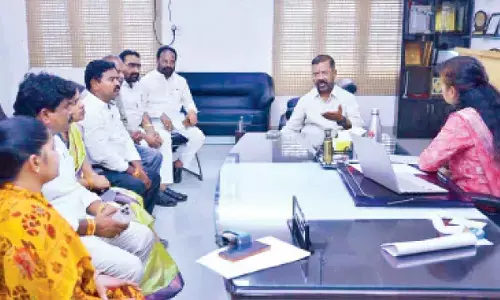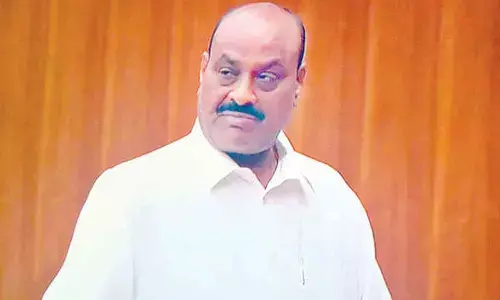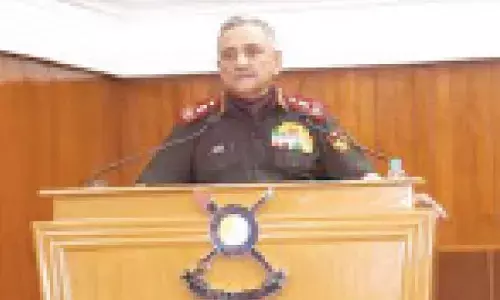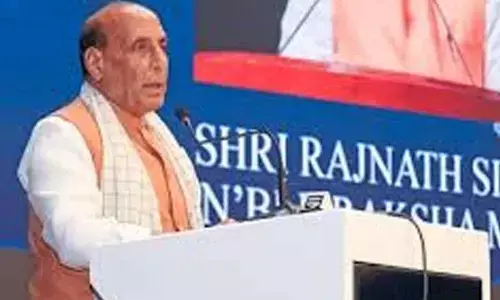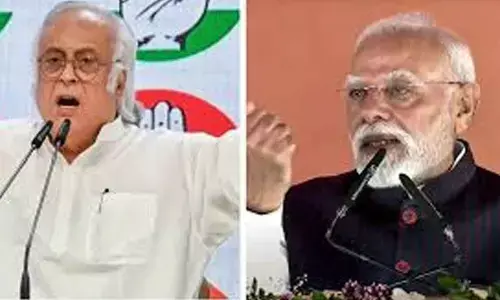Nirmohi Akhara seeks control of Ayodhya land
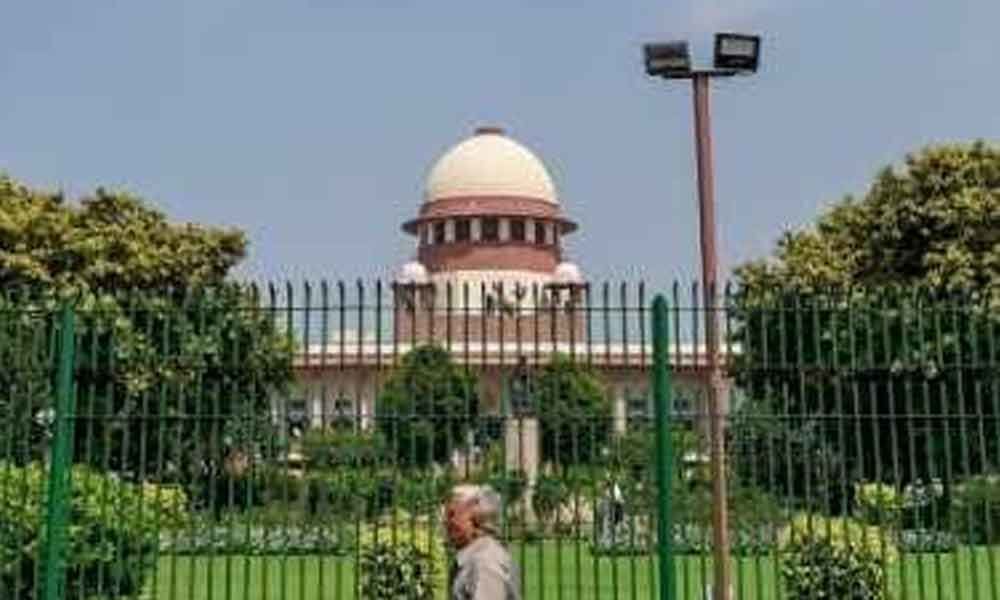
Muslims have not been allowed to enter the disputed Ram Janmabhoomi- Babri Masjid structure in Ayodhya since 1934, a Hindu group informed the Supreme Court on Tuesday
New Delhi : Muslims have not been allowed to enter the disputed Ram Janmabhoomi- Babri Masjid structure in Ayodhya since 1934, a Hindu group informed the Supreme Court on Tuesday and sought the control and management of the entire 2.77 acre land which is under dispute.
Nirmohi Akhara, one of the parties to the case, said while advancing the arguments that the structure has been in its exclusive possession. The day-to- day hearing in the case commenced on Tuesday after the efforts to arrive at an amicable settlement through mediation failed.
A five- judge Constitution bench headed by Chief Justice Ranjan Gogoi was informed by senior advocate Sushil Jain, appearing for Nirmohi Akhara, that it was seeking management and possession of the area.
The bench, also comprising Justices S A Bobde, D Y Chandrachud, Ashok Bhushan and S A Nazeer, began the day-to- day hearing by rejecting the plea of former RSS ideologue K N Govindacharya seeking recording of the Ayodhya case proceedings.
The Akhara counsel briefed the apex court that their suit was basically for belongings, possession and management rights.
"I am a registered body. My suit is basically for belongings, possession and management rights," said the Akhara counsel. He also briefed the court that the Akhara was in possession of the inner courtyard and Ram Janmasthan for hundreds of years.
"We were in possession of inner courtyard and Ram Janmasthan for hundreds of years. Outer courtyard having 'Sita Rasoi', 'Chabutra', 'Bhandar Grah' were in our possession and it was never a part of dispute in any case," the senior counsel informed the bench.
The ongoing hearing also witnessed a heated exchange of words between the bench and senior advocate Rajeev Dhavan, who is appearing for a Muslim party.
While the bench was asking the counsel for Nirmohi Akhara to confine his arguments to civil dispute and asking him to skip reading some written statements, Dhavan interfered and said perhaps there would not be any curtailment of arguments.
The CJI replied that there should not be any doubt in anybody's mind that the hearing or the arguments would be curtailed in any manner. Dhavan did not stop and again said that is what he was saying and made some statement.
At this, the CJI said, "Dr Dhavan, keep the dignity of the court." Dhavan said that he had replied to some questions only. The bench told him, "Please keep in mind that you are officer of the Court and all we are saying that we are not going to curtail anybody's arguments".
The counsel representing Nirmohi Akhara claimed right over the disputed 2.77-acre Ramjanmabhumi- Babri Masjid land and said they have been possessing, managing and worshipping Lord Ram Lalla since time immemorial at the site.
"In any case, you have been given one-third of disputed area in preliminary decree by the High Court," the bench told the Nirmohi Akhara's counsel.
The counsel for Nirmohi Akhara referred to the Allahabad High Court findings on the issues framed in the land dispute. "Before 1934, Muslims were offering regular prayers, High court had noted in the verdict," the bench observed.
The counsel for Nirmohi Akhara quoted the high court verdict and said that since 1934 to 1949, Muslims were offering Friday prayers at the disputed structure.
Citing another evidence, the counsel said that absence of provision for 'wuzu', by which Muslims wash hands and body parts before Namaz, at disputed site was interpreted by the high court to arrive at the conclusion that prayers were not being offered there since long and thus it had ceased to be a mosque.
Fourteen appeals have been filed in the apex court against the 2010 Allahabad High Court judgment, delivered in four civil suits, that the 2.77-acre land in Ayodhya be partitioned equally among the three parties -- the Sunni Waqf Board, the Nirmohi Akhara and Ram Lalla.
On December 6, 1992, the Babri Masjid, constructed at the disputed site in the 16th century by Shia Muslim Mir Baqi, was demolished.



